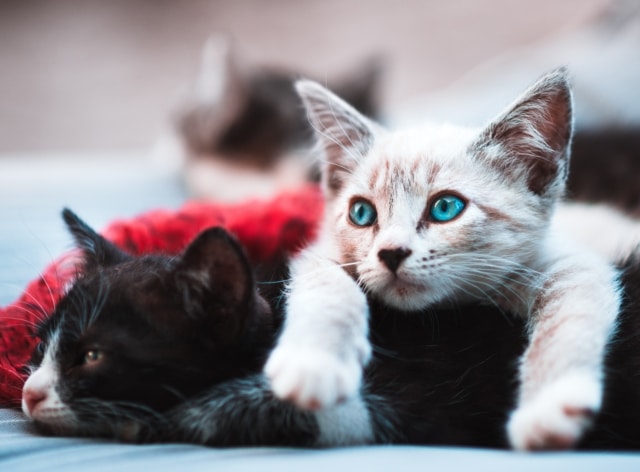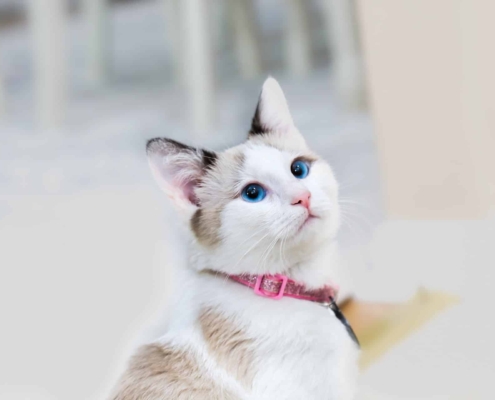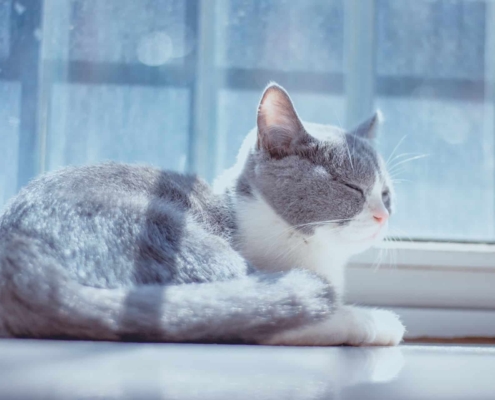
Cats are beloved pets that bring joy and companionship to millions of households around the world. As cat owners, it is our responsibility to ensure their safety and well-being. While we may think our homes are safe environments for our furry friends, there are hidden dangers that can pose serious health hazards for cats. In this article, we will explore the common household hazards, toxic foods, dangerous plants, and household products that can harm cats. We will also discuss outdoor hazards, how to recognize signs of illness in cats, preventive measures, and what to do in emergency situations. By being aware of these potential dangers and taking appropriate measures, we can keep our feline companions safe and healthy.
Common Household Hazards for Cats
Our homes may seem like safe havens, but there are several common hazards that can be harmful to cats. One such hazard is household cleaning products. Many cleaning products contain chemicals that are toxic to cats if ingested or inhaled. Cleaning agents like bleach, ammonia, and even certain essential oils can cause severe health issues for cats, including respiratory problems and chemical burns. It is crucial to store these products securely and use pet-friendly alternatives whenever possible.
Another household hazard for cats is electrical cords. Cats are naturally curious creatures and may chew on cords, leading to electrocution or burns. To prevent accidents, it is advisable to keep cords out of their reach or use cord protectors to discourage chewing. Additionally, certain human medications, such as painkillers and antidepressants, can be toxic to cats. Always store medications securely and never give your cat any medication without consulting a veterinarian.
Toxic Foods for Cats
While it may be tempting to share our meals with our feline companions, it is essential to be aware that some human foods can be toxic to cats. One of the most well-known toxic foods for cats is chocolate. Chocolate contains theobromine, a compound that cats cannot metabolize properly, leading to symptoms such as vomiting, diarrhea, rapid breathing, and even seizures. Other foods to avoid giving your cat include onions, garlic, grapes, raisins, and certain artificial sweeteners like xylitol. These foods can cause a range of health issues, from gastrointestinal upset to kidney failure. It is best to stick to a balanced diet specifically formulated for cats and consult a veterinarian before introducing any new food to their diet.
Plants that are Dangerous for Cats
Many indoor and outdoor plants can be toxic to cats if ingested. Some common examples include lilies, azaleas, tulips, and daffodils. These plants contain toxins that can cause severe kidney damage or even be fatal to cats. It is crucial to ensure that these plants are kept out of reach or avoided altogether. If you are unsure about the safety of a particular plant, it is best to consult a veterinarian or refer to a comprehensive list of toxic plants for cats. Additionally, be cautious when using pesticides or insecticides in your garden, as these chemicals can also be harmful to cats if they come into contact with them.
Household Products that can Harm Cats
In addition to cleaning products, several other household items can pose risks to cats. One such item is antifreeze, which contains ethylene glycol, a highly toxic substance. Cats may be attracted to the sweet taste of antifreeze and can suffer from severe poisoning if ingested. It is crucial to store antifreeze securely and clean up any spills immediately. Another common household product that can harm cats is certain types of rodenticides. These products are designed to kill rodents but can also be lethal to cats if ingested. Always use pet-safe alternatives or consult with a professional exterminator to ensure the safety of your cat.
Outdoor Hazards for Cats
While it is important to provide cats with opportunities for outdoor exploration, there are hazards that they may encounter. One of the most significant dangers for outdoor cats is traffic accidents. Cats roaming freely outside are at risk of being hit by cars, resulting in severe injuries or even death. To mitigate this risk, it is advisable to keep your cat indoors or provide them with a secure outdoor enclosure. Another outdoor hazard for cats is encounters with wild animals or stray cats, which can transmit diseases or cause physical harm. Keeping your cat up to date on vaccinations and providing a safe outdoor space can help reduce these risks.
Recognizing the Signs of Illness in Cats
Cats are known for their stoic nature, often hiding signs of illness until the condition has progressed. It is important for cat owners to be vigilant and recognize the subtle signs that may indicate a health issue. Some common signs of illness in cats include changes in appetite, weight loss, lethargy, excessive grooming, vomiting, diarrhea, difficulty urinating, or breathing problems. If you notice any of these signs or any other unusual behavior, it is essential to consult a veterinarian. Regular veterinary check-ups are also crucial for preventive care and early detection of any underlying health problems.
Preventive Measures to Keep Your Cat Safe and Healthy
Prevention is key when it comes to keeping your cat safe and healthy. There are several measures you can take to minimize the risks associated with health hazards. Firstly, ensure that your home is cat-proofed by removing or securing any potential hazards. This includes securing windows and balconies, covering electrical cords, and storing toxic substances securely. Providing a balanced and nutritious diet tailored to your cat’s specific needs is also essential for their overall health and well-being. Regular exercise and mental stimulation are equally important in maintaining their physical and mental health.
Emergency Situations and What to Do
Despite our best efforts, emergencies can still occur. It is crucial to be prepared and know what to do in such situations. If you suspect your cat has ingested a toxic substance, contact your veterinarian immediately or call a pet poison control hotline. Keep the contact information for emergency veterinary clinics readily available. In the event of an accident or injury, it is important to handle your cat with care and seek veterinary attention promptly. Having a first aid kit specifically for cats can also be beneficial in providing immediate care until professional help is available.
Keeping Your Cat Safe and Healthy
Cats bring immense joy and companionship to our lives, and it is our responsibility to ensure their safety and well-being. By being aware of the hidden dangers and health hazards that can affect cats, we can take appropriate measures to keep them safe. From common household hazards to toxic foods, dangerous plants, and outdoor risks, it is essential to create a safe environment and provide preventive care for our feline companions. Regular veterinary check-ups, a balanced diet, and a cat-proofed home are essential elements in keeping our cats healthy and happy. By taking these steps, we can enjoy many years of love and companionship with our furry friends.
If you enjoyed my article, I would appreciate you sharing it with your network.

Sima Ndlebe
Sima writes for CatBuzz. He is interested in Cats, Health and Fitness, and Entrepreneurship.
Published: 12 October 2023
Related Articles
Disclaimer
The content found on CatBuzz.org is presented on an "as is" basis and is intended for general consumer information and education purposes only. Any utilization of this information is voluntary and solely at the user's own risk.
None of the articles or content should be regarded as, or used in place of, veterinary medical advice, diagnosis, or treatment. The information provided on the website is purely for educational and informational intentions and should not be considered a substitute for professional guidance from a veterinarian or other qualified expert. The articles are designed to inform consumers about veterinary healthcare and medical matters that may impact their cat's daily life. It should be noted that this website and its services do not constitute the practice of any form of veterinary medical advice, diagnosis, or treatment. CatBuzz.org explicitly disclaims any liability for any direct or indirect damages or losses that may arise from the use of or reliance on the information contained within the content.
Consumers must consult a veterinarian, veterinary specialist, or another qualified veterinary healthcare provider when seeking advice regarding their cat's health or medical conditions. It is important not to ignore, avoid, or postpone seeking medical advice from a veterinarian or other qualified veterinary healthcare provider solely based on information obtained from this website. If you believe that your cat may be experiencing a medical issue or condition, it is imperative to promptly contact a qualified veterinary healthcare professional.



